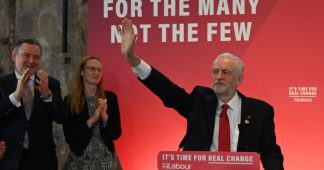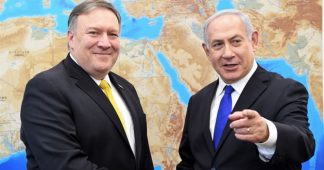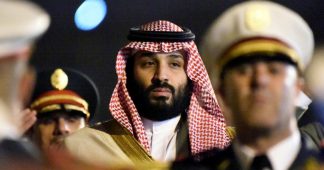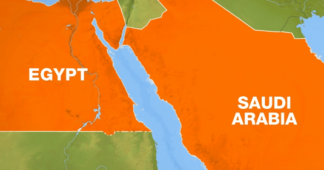By Στιβ Μπέινμπριτζ
Nov 23, 2021
Newcastle United, an English Premier League football club famous for its passionate support (around 50 000 fans watch every home game) and not winning anything in England since 1955, is now one of the richest clubs in the world. Newcastle fans are jubilant, but not everyone is happy. The purchase of the club by a consortium led by Saudi Arabia’s Public Investment Fund (PIF) for some Euro 354 million (paid in cash), has led to accusations by human rights groups of ‘sportswashing’, namely the use of sport by individuals, groups, corporations, or nation-states to improve their reputation.
Sportswashing is not new or only in football. Mussolini’s fascist Italy hosted the 1934 World Cup and Nazi Germany held the 1936 Olympic games in Berlin. More recently sportswashing allegations were made against Olympic Games in China (summer 2008) and Russia (winter 2014). Many oppose the 2022 World Cup being in Qatar for the same reason. In football, specifically, sportswashing has spread from hosting tournaments to owning teams. Roman Abramovich denies and has taken legal action against reports that Russian president, Vladimir Putin, ordered him to buy Chelsea in 2003. There are no doubts about Sheikh Mansour of Abu Dhabi’s purchase of Manchester City in 2008, or that Tamim bin Hamad Al Thani, the Emir of Qatar, bought Paris St. Germain in 2011.
Human rights organisation, Grant Liberty, estimates that Saudi Arabia has spent at least $1.5bn on high-profile international sporting events, including horse-racing and Formula One. Objections to the Saudi deal for Newcastle United are strong. Amnesty International describes the country’s human rights record as ‘atrocious’. Saudi Arabia follows ‘Wahhabism’, a strict form of Islam. Women’s rights are severely restricted and same-sex relationships are punishable by flogging or death. Freedom of speech is limited. In 2020, Saudi Arabia was 170th out of 180 countries for press freedom and, in 2019, it executed 184 people.
TV rights, not human rights
The English Premier League is, however, satisfied. The deal to buy Newcastle had been held up over a dispute that the Saudi state had pirated the TV rights to show English football from its neighbour Qatar. This dispute was settled in 2020, and with ‘legally binding assurances’ that the PIF, not the Saudi state, will control Newcastle, the Premier League has said that the deal meets its ‘owners and directors’ test.
Such ‘assurances’ seem thin. ALQST, a Saudi human rights group based in the UK,says that the PIF, which has put up 80% of the money to buy Newcastle, and the Saudi state are “inseparable”. The Saudi PIF, is chaired by Crown Prince, Mohamed bin Salman. Known as MBS, the Crown Prince is a controversial figure. As Saudi minister of defence he launched an air war against Yemen. As head of his country’s security and intelligence services he is accused of jailing and torturing critics of his regime. According to US intelligence sources, it is highly likely that MBS approved the notorious murder of journalist Jamal Khashoggi who was seized, tortured and dismembered with a bone saw in the Saudi Consulate in Istanbul in 2018. The Saudi state denies that MBS was involved.
Newcastle United fans were criticised as thousands gathered outside their stadium, some wearing towels on their heads, to celebrate the takeover of their club. Concerns over human rights seemed to matter little as fans looked forward to Newcastle competing for football’s biggest prizes by singing, ‘F**k off Manchester City, we’re richer than you.’
As happy as Newcastle fans are with the new owners most are even happier at the departure of previous owner Mike Ashley. His 14-year rule has been one of suffering and misery for Newcastle fans who have seen their club slide into mediocrity. Ashley is a billionaire businessman whose company Sports Direct was accused of treating its workers without dignity and respect and fined for paying less than the minimum wage. As disagreeable as Ashley is, he has not been accused of starting a war or being involved in murder. That Newcastle fans prefer MBS to Ashley does not reflect well on them.
Business, simply business
However, Newcastle fans are not responsible for the Saudi takeover of their club, or the activities of the regime. The power to decide who owns elite English football lies with the Premier League and the UK government, not the fans. For all its ‘tests’ and ‘assurances’, the Premier League is not going to stop billionaires investing in top English football, no matter where they are from. Despite its strong opposition to a European Super League, the UK government was never going to block the takeover of Newcastle United by Saudi Arabia, a country that is a close ally of the UK (and US), an opponent of Iran, and an important customer for sales of weaponry.
But football is supposed be more than a business or a cynical tool of international relations. This is at the heart of Newcastle fans objections to Mike Ashley, who ran the team as part of his business empire. Under Ashley, Newcastle won nothing but made a profit. If under Saudi ownership Newcastle United win things, much will be forgiven and forgotten.
Sportswashing does not change football as a community of identity and belonging, a spirit that fans create and nurture through friendship and rivalry. Football will remain a shared, interactive, living soap-opera of heroes and villains, of glory and pain and, sometimes, boredom. For many, football is a love affair beyond logic. But the virtue of football being a collective experience because it belongs to the fans that make it important is corrupted by sportswashing. How much Newcastle United Football Club matters to MBS and Saudi Arabia is difficult to say. MBS paid more for Leonardo da Vinci’s painting of Christ, the ‘Salvator Mundi’, than he did for Newcastle. Sportswashing shows football, for all the passion it arouses, is just a business, which along with its fans, is for sale to the highest bidder.
Publised at kosmodromio.gr
We remind our readers that publication of articles on our site does not mean that we agree with what is written. Our policy is to publish anything which we consider of interest, so as to assist our readers in forming their opinions. Sometimes we even publish articles with which we totally disagree, since we believe it is important for our readers to be informed on as wide a spectrum of views as possible.











